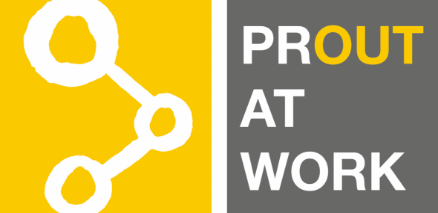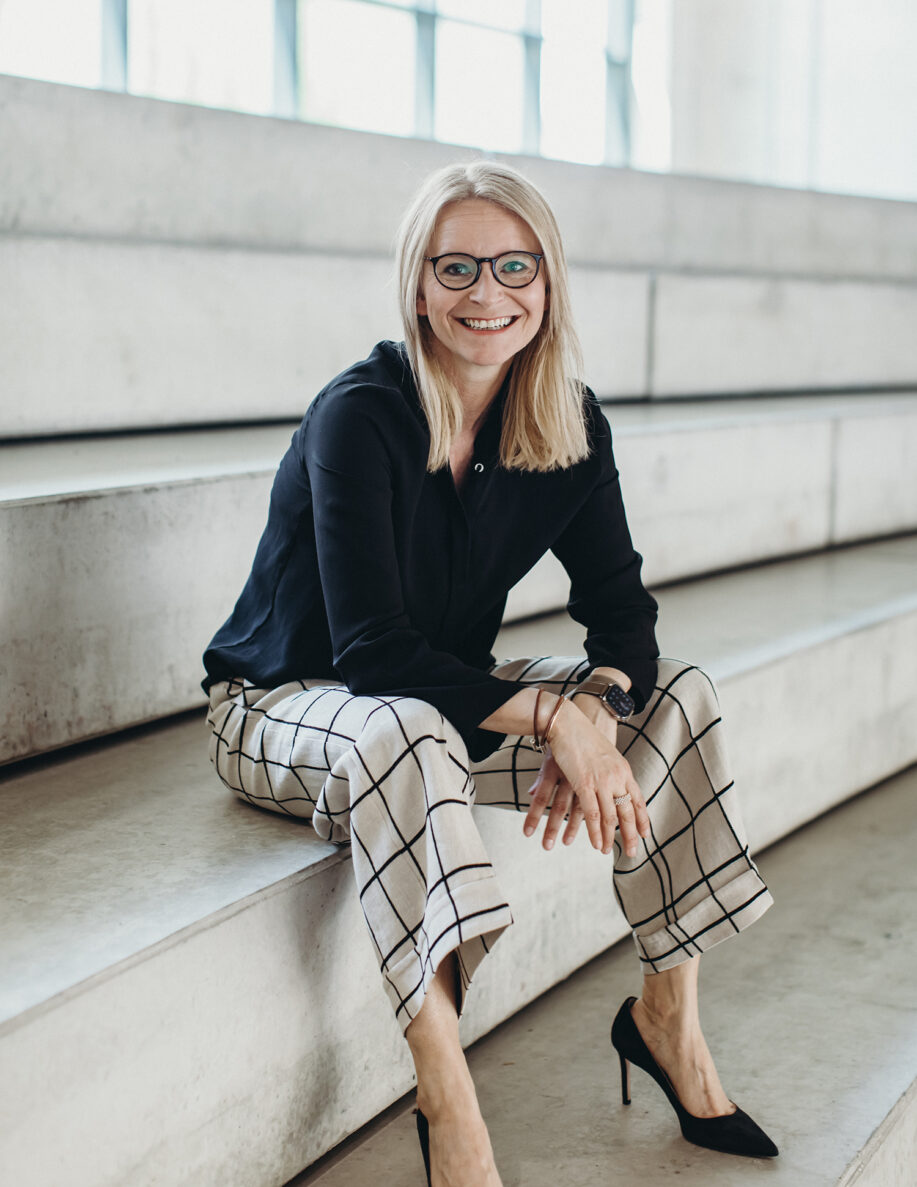
PROUT EMPLOYER o2 TELEFÓNICA
“A workplace where everyone can be their authentic selves without fear isn’t just safe – it enables peak performance and fosters true community.“
Nicole Gerhardt has been with Telefónica Deutschland since August 2017 and serves as Chief Organizational Development & People Officer, overseeing organizational development and the company’s people department. In this role, she takes a holistic view of the organization, its development, transformation, and capacity for renewal, and drives these forward. As the sponsor of the PRIDE Community at o2 Telefónica, Nicole Gerhardt is a strong advocate for a diverse and inclusive corporate culture.
Why is it a matter of the heart for you
to support queer employees?
Nicole Gerhardt: At Telefónica, we believe diversity is the engine of innovation and resilience. Diverse perspectives bring new ideas and strengthen our organization. Queer employees play an indispensable role by expanding our thinking and dismantling barriers. A workplace where everyone can be their authentic selves without fear isn’t just safe – it enables peak performance and fosters true community. And that’s what people are looking for, especially now.
What initiatives do you pursue in your company with regard
to equal opportunities for queer people in the workplace?
Nicole Gerhardt: At o2 Telefónica, we focus on initiatives that create an environment in which everyone can develop authentically. Our PRIDE community plays a central role in this: it raises awareness of queer issues and promotes exchange at all levels of the company. We create concrete structures for equal opportunities through regular training, awareness-raising measures and visible support from the Management Board, including in other dimensions of diversity. Our goal is to actively counteract discrimination, amplify queer voices within the company, and, most importantly, learn from one another while breaking down fears.
What are the next steps, wishes and
goals for queer diversity at Telefónica?
Nicole Gerhardt: It’s not about taking many steps, but the right ones – consistently and with conviction. It doesn’t have to be complicated: communication, training, and the awareness that this work is never truly finished are key. For example, we talk far too little about the fact that LGBTIAQ+ discrimination is once again on the rise here in Germany. Our societal achievements must be continuously defended. I want us to embrace our role as bridge-builders, both within and beyond the company, even more strongly.
Where do you hope to get concrete support
from PROUT AT WORK?
Nicole Gerhardt: We look to PROUT AT WORK primarily for professional expertise and practical support. We understand that implementing effective DE&I measures in socially and economically challenging times requires a special level of sensitivity and experience – qualities that PROUT AT WORK brings to the table. Additionally, we value the opportunity to engage in constructive and confidential exchanges with other companies.
What advice would you give to other companies
that have not yet discovered queer diversity for themselves?
Nicole Gerhardt: Start—but only if you mean it. The time for tokenism is over. Companies that listen, learn, and create spaces where everyone can be their authentic selves gain the best ideas and the strongest teams. But it’s about more than business: queer inclusion is a contribution to a fairer society—the kind we all want to live in. The first steps? Small, intentional actions like awareness training, open dialogue, or policies that truly address queer needs. This shows that real change doesn’t come from the outside – it starts from within.
Dear Nicole Gerhardt, thank you very much for the interview!
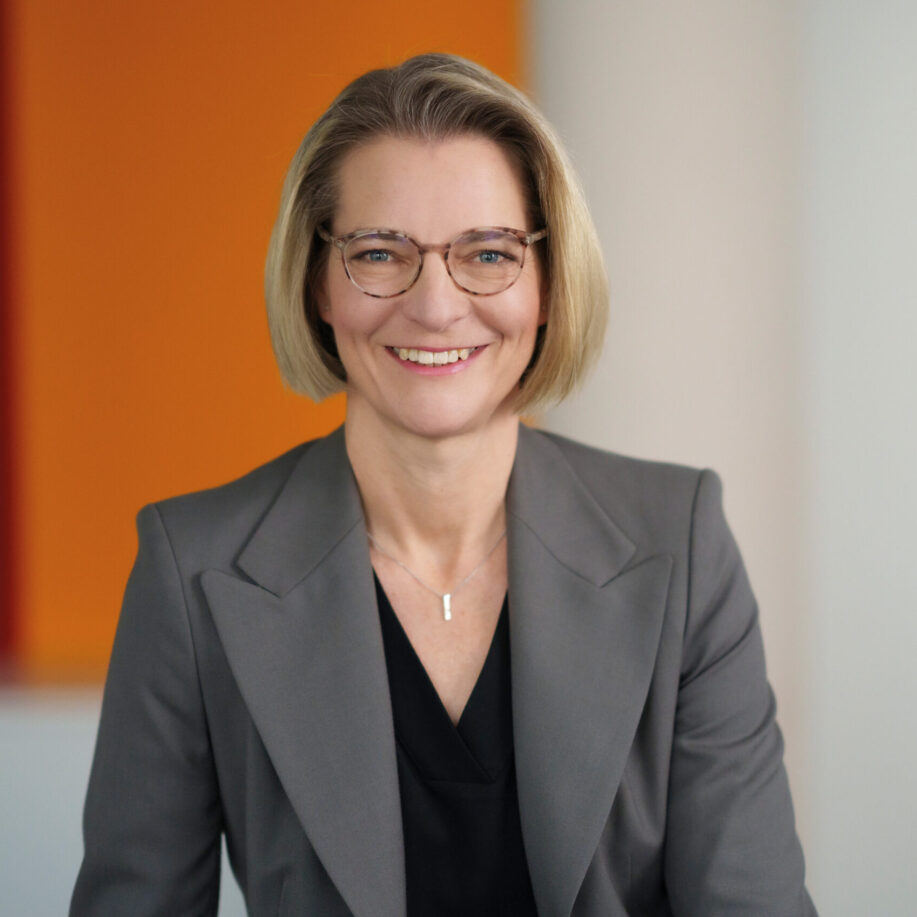
PROUT EMPLOYER BASF
„As long as we have not yet managed to create these conditions in the world of work and society for everyone, we will miss out on opportunities and not use our full potential.“
Katja Scharpwinkel was born in Hagen in 1969. She studied chemistry at the University of Münster and received her diploma in 1994, followed by her doctorate in 1996.
As a member of the Executive Board, she is responsible for European Site & Verbund Management; Global Engineering Services; Corporate Environmental Protection, Health, Safety & Quality and the Europe, Middle East, Africa region.
WHAT DOES IT MEAN FOR YOU AS SITE MANAGER FOR THE LUDWIGSHAFEN
SITE TO STAND UP FOR MORE QUEER DIVERSITY AND VISIBILITY?
Dr. Katja Scharpwinkel: In my role as site manager, it is my job to bring the team at the site together. With the challenges of the present and future, it is important that we are motivated and, above all, united in working towards our goals. This is only possible if no one has to struggle with reservations or artificial barriers. This applies not only in Ludwigshafen, but also in our private lives. An important step in breaking down reservations is exchanging ideas and getting to know each other. I want to help drive this forward – and I know that I am not alone in this, but have many committed people at my side – at BASF and in the PROUT AT WORK network.
WHAT DO YOU THINK OF THE STATEMENT THAT FROM NOW
ON MORE IMPORTANT ISSUES THAN QUEER DIVERSITY?
Dr. Katja Scharpwinkel: I think there is no point in weighing up issues that move and shape society against each other. We shouldn’t put climate protection and the necessary (energy) transformation on the back burner because of a pandemic or the wars in Ukraine and Gaza.
And so queer diversity remains as relevant as ever. For me, it also stands for tolerance, cohesion and humanity. These values are the basis of our coexistence in a democracy – we must protect them no matter what. Anything else would be a big step backwards for our society.
WHY IS IT A MATTER CLOSE TO YOUR HEART TO
SUPPORT QUEER DIVERSITY?
Dr. Katja Scharpwinkel: Like most people, I want to work in a company where I can be who I am. Only then can I be motivated and have fun, only then can and will I contribute my best. As long as we have not yet managed to create these conditions in the world of work and society for everyone, we will miss out on opportunities and not use our full potential. This is a situation that has been unacceptable not just since the skills shortage. That is why I am committed to diversity in both my private and professional life.
Dear Katja, thank you very much for the interview!
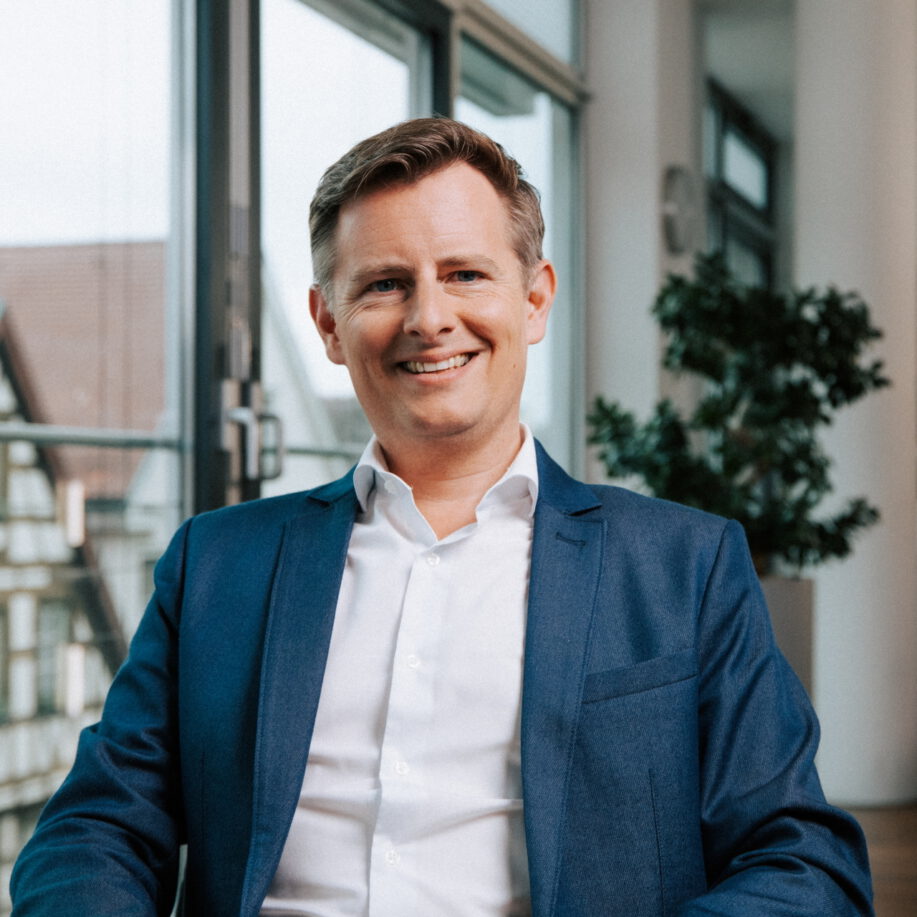
PROUT EMPLOYER BCG PLATINION
„By embracing diversity, we not only enrich our organizational culture but also drive innovation and creativity.“
Matthias Burghardt is an Associate Director at BCG Platinion and supports financial service providers in Central Europe with digital transformations. He studied Information Engineering and Management in Karlsruhe and earned a PhD in Business. Matthias heads the DE&I (Diversity, Equity & Inclusion) activities at BCG Platinion in Central Europe as well as the LGBTQ+ network Pride @ BCG Platinion in EMESA where all activities of the Pride members and allies are coordinated.
You were immediately willing to do a joint interview –
thank you again! Why is it a matter close to your heart or a
concern for you to support queer people in the workplace?
Matthias Burghardt: Supporting queer people in the workplace is crucial for me because it fosters a truly inclusive and respectful environment where every individual can thrive. By embracing diversity, we not only enrich our organizational culture but also drive innovation and creativity. It reflects a commitment to equality and human rights, ensuring that everyone, regardless of their sexual orientation or gender identity, has equal opportunities to succeed and contribute to our collective success.
Which initiatives regarding equal opportunities for queer
people in the workplace are you pursuing within your company?
Matthias Burghardt: We are committed to fostering equal opportunities for queer employees through a multifaceted approach. We are building a diverse workforce by actively recruiting from a wide range of backgrounds and promoting an inclusive environment where everyone can bring one’s true self to work. Our initiatives are centered around our close-knit Pride members and allies, creating a “secret sauce” where everyone finds community. We are also enhancing our external communications to reflect our commitment to LGBTQ+ inclusivity.
Which role do allies play in your organization and
how do you engage them in your LGBTQ+ initiatives?
Matthias Burghardt: Allies are incredibly important for the acceptance and inclusion of LGBTQ+ individuals. Especially allies who actively and strongly advocate for queer issues are essential for LGBTQ+ people to feel fully accepted at work. We understand the importance of an inclusive atmosphere among employees, achievable only by integrating the issue into our company culture. Allyship is more than just changing the company flag on LinkedIn or hosting an annual fair. Allies are an integral part of our Pride Community.
What motivated BCG Platinion to become a PROUT EMPLOYER
and what would you like to see in our cooperation?
Matthias Burghardt: Our motivation to become a PROUT EMPLOYER stems from a deep commitment to fostering an inclusive workplace that celebrates diversity and supports the LGBTQ+ community. We aim to lead by example, promoting equality and understanding. In our cooperation, we aspire to share best practices, innovate in diversity initiatives, and create a broader impact through community engagement, advocacy, and awareness programs. Together, we can build a more inclusive world where everyone is empowered to succeed.
What advice would you give to other companies
that have not yet discovered queer diversity for themselves?
Matthias Burghardt: Embrace queer diversity as an asset. It enriches your company culture, drives innovation, and appeals to a broader customer base. Start by creating a safe, inclusive environment where all voices are heard and valued. Invest in diversity training, support LGBTQ+ employee networks, and commit to equitable policies. Learning from and partnering with organizations like PROUT AT WORK can accelerate your journey. Diversity isn’t just right; it’s smart business. Don’t get left behind.
Dear Matthias Burghardt, thank you very much for the interview!
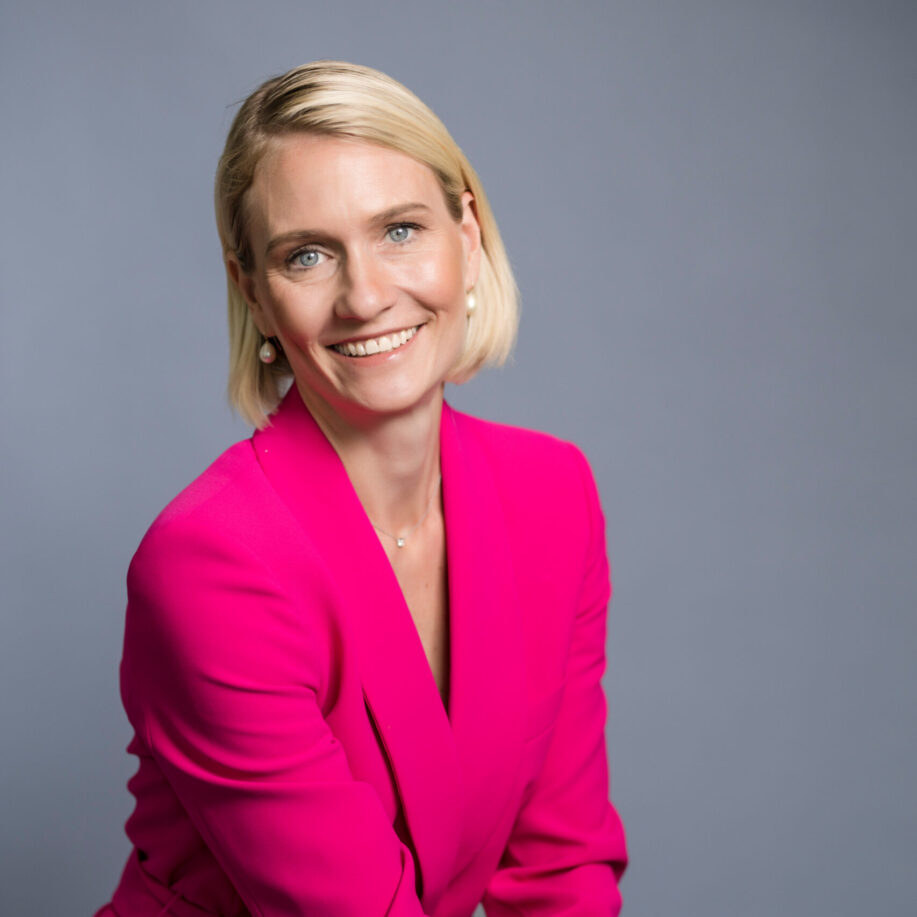
PROUT EMPLOYER Sanofi
“As a sponsor of the network, the queer community is particularly close to my heart. Neither at Sanofi nor in the rest of society can we do without diversity and talent of any sexual orientation, religion, age or origin.”
Dr. Theresa von Fugler is a biochemist, “doer” and family person. As an executive with global experience in the branded goods industry, she has been Managing Director at Sanofi Consumer Healthcare in Germany since September 2021. She is responsible for the area of over-the-counter medicines from pharmacies. This includes brands for the treatment of headaches, coughs, abdominal pain, constipation and allergies. She is a sponsor of the internal LGBT*IQ network in Germany and is particularly committed to diversity in the workplace. In her private life, Theresa is active in sports and finds variety in beekeeping.
Sanofi’s global diversity strategy is called “all in”.
What does this slogan mean to you?
Dr. Theresa von Fugler: As the name suggests, for me “all in” is a positive term for the fact that people of every dimension of diversity can develop here. Sanofi’s employees in Germany are a reflection of society – people of different backgrounds, experiences, attitudes and skin colors work here. We want to be as diverse as the patients we serve.
The equal opportunities development of all employees is part of our corporate culture and a strategic success factor. Inclusion is not a minority program. We want a working environment in which everyone feels valued and supported without any form of discrimination.
Which initiative or action on equal opportunities for
queer people at Sanofi that particularly impressed you?
Dr. Theresa von Fugler: I was fascinated by the Sanofi truck at Christopher Street Day 2023. The passion and joy with which our team took part in the CSD inspired many people to be there too. Showing our colors on this day was a clear commitment to LGBT*IQ and “all in”. Miraculously, our LGBT*IQ network has since grown to include more members. For me, this is an important message – because diversity should have a positive connotation. It’s not for nothing that an expressive and colorful symbol – the rainbow – stands for the LGBT*IQ community worldwide.
In your opinion, what are the big issues and
challenges regarding queer diversity in the
coming years?
Dr. Theresa von Fugler: The area of tension associated with LGBT*IQ diversity is particularly challenging. This affects Sanofi just as much as society as a whole. On the one hand, it is important to encourage people to embrace their uniqueness, which above all requires acceptance and a matter of course. On the other hand, there are people who are bothered by measures to strengthen LGBT*IQ diversity – regardless of whether they come into direct or indirect contact with them. This reinforces the social tension.
What motivated Sanofi to become a PROUT EMPLOYER
and what would you like to see in our cooperation?
Dr. Theresa von Fugler: When we founded our internal LGBT*IQ network “PRIDE+ DE”, it was clear to us right from the start that we wanted to bring in external support and expertise. The aim at the start was to further develop the quality of the network’s work and growth. Every network has a learning curve right from the start. With a strong partner, we wanted to avoid initial mistakes and act strategically. It is also good to network across company boundaries in order to learn from each other and strengthen each other in our day-to-day work.
What advice would you give to other companies
who have not yet discovered queer diversity for themselves?
Dr. Theresa von Fugler: As a sponsor of the network, the LGBT*IQ community is particularly close to my heart. Neither at Sanofi nor in the rest of society can we do without diversity and talent of any sexual orientation, religion, age or origin. But only when opportunities are fairly distributed can talents develop their full potential. Diverse groups help to break down barriers in people’s minds and obstacles in everyday working life.
One thing is certain for me: surrounding ourselves with diverse and different people helps us all move forward, I’m sure of that.
Dear Dr. Theresa von Fugler, thank you very much
for the interview!
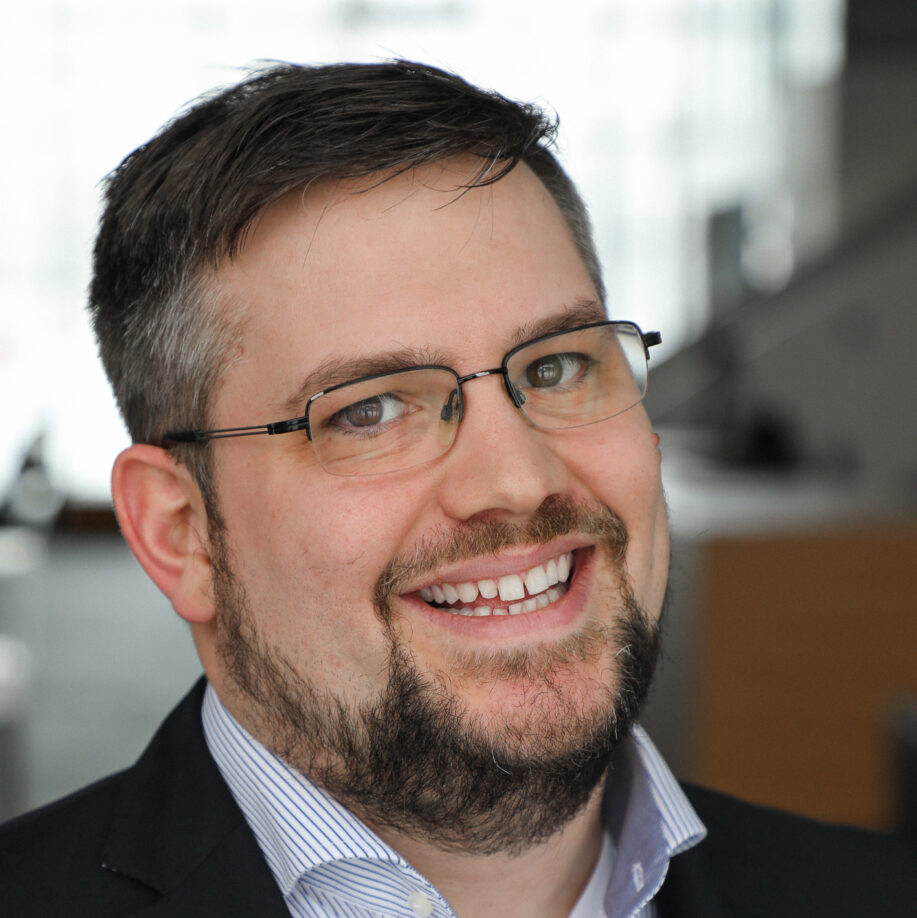
PROUT EMPLOYER Infineon Technologies AG
“I am striving to live and promote the value of diversity in my direct area of responsibility, but do not shy away from supporting beyond that.”
Raphael joined Infineon in May 2016 as a Senior Expert for Ethical Hacking and Incident Management. Before joining Infineon, he worked as a Security Consultant for various national and international companies. In 2017 Raphael took over his first management role at Infineon setting up the Cyber Defense Center as a global team. In 2020 he then took over as Head of the Cyber Security team – in June 2023 the role has been extended to cover all security topics as Head of the newly merged Cyber & Corporate Security teams. Raphael was always part of multinational teams and companies which he enjoyed a lot.
Raphael graduated from University of Tübingen in 2013, where he studied Computer Science. He is married and has two children, lives in Munich but was born in Baden-Wuerttemberg. Fun Fact: His swabian is as bad as his “Hochdeutsch” ;).
You were immediately ready for an interview
– thank you again for that!
Why is it important for you to support queer topics?
Raphael Otto: Diversity in all dimensions; gender, nationality, physical / mental ability or sexual orientation, just to name a few, is very close to my heart. I believe that as a society we benefit from different perspectives. I also believe that as an employer we have a responsibility when it comes to living and promoting our values. I am striving to live and promote the value of diversity in my direct area of responsibility, but do not shy away from supporting beyond that. So, when I was asked if I would be available as a sponsor to our LGBT* & Friends Community, I felt very honored and agreed immediately.
What initiative related to equal opportunities
for queer people was successful at Infineon?
Raphael Otto: In June, during Pride Month, Infineon participated in several pride parades (e.g. Munich) to show support and raise awareness for the LGBTQIA+ community, their history, culture and ongoing work for equal opportunities. The very positive feedback we received from our employees and external stakeholders has shown that our commitment is well received and motivates us to continue with our support for LGBTQIA+.
What are your wishes and goals in your role as sponsor
for the Infineon LGBT* & Friends community?
Raphael Otto: While the LGBT* & Friends Community already achieved a lot, we are still in the beginning of a journey here at Infineon. My wish is to support the community by providing advice, visibility and hands-on support during various activities and events. In particular I want to support the colleagues when addressing LGBTQIA+ inclusion globally. As we are a globally operating company, we face the reality of different levels of awareness and acceptance of LGBTQIA+ issues which can be challenging for our internal community. I hope I can help with that and advocate for them.
How do you react when people question
the importance of queer inclusion?
Raphael Otto: As for every dimension of diversity and inclusion I am typically trying to listen to the argumentation behind the reservation first. I will challenge the arguments highlighting the importance of diversity for successful teams and the need for all humans to feel a sense of belonging and acceptance in society and of course in the workplace. I make clear that everyone wants to be accepted as they are and that this is a human right which should not be questioned.
What motivated Infineon to become a PROUT EMPLOYER
and what would Infineon like to see in this cooperation?
Raphael Otto: At Infineon, we want to offer a workplace where everyone is accepted, feels a sense of belonging and can bring their authentic self to work. Participating in the PROUT EMPLOYER Program is a great chance for us to express our commitment to Diversity & Inclusion and to further increase our knowledge about how to support Infineon’s LGBTQIA+ members as a PROUT EMPLOYER. We are very happy about the cooperation with PROUT AT WORK, which will accompany us with their expertise to create the best Infineon for people of any sexual orientation, gender identity or gender expression.
Dear Raphael Otto,
thank you for the interview!
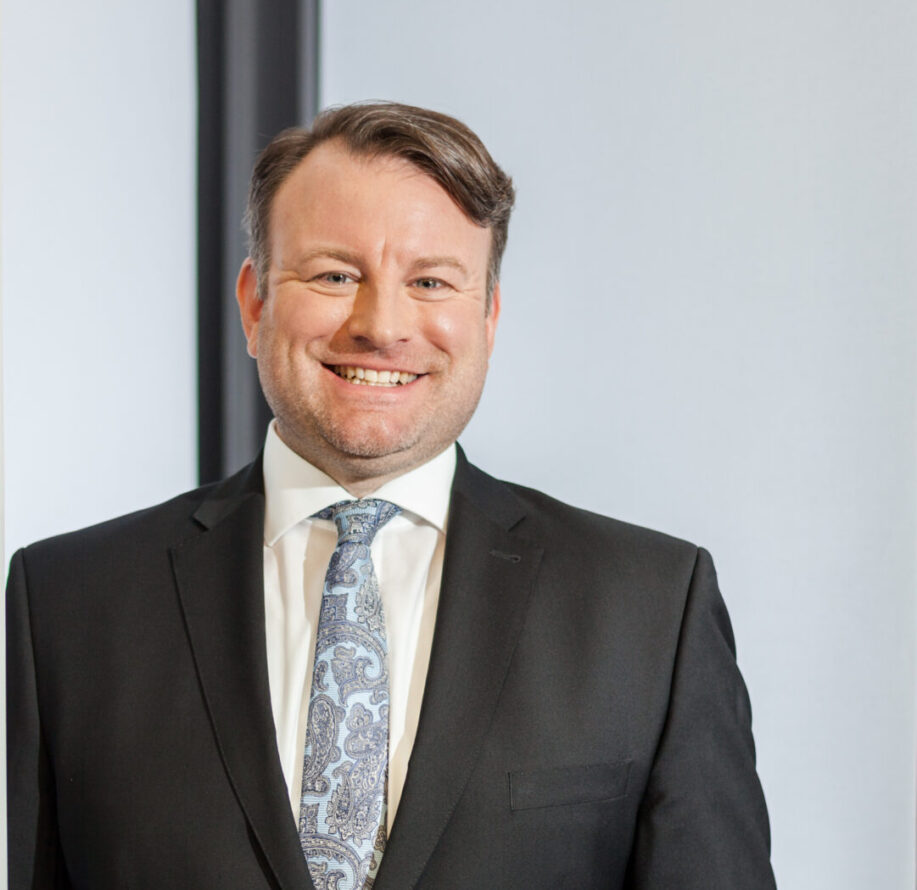
PROUT EMPLOYER ERGO
“I believe that in addition to the pure visibility that we achieve with pride networks, for example, other things are also important. We need to point out unconscious bias. We need gender inclusive language. ”
Markus Bader is 45 years old and lives with his partner in Hamburg. After studying business informatics, he joined Hamburg Mannheimer Versicherung, part of the ERGO Group, as IT coordinator in 2002. After 3 years he was able to take over a first management position as group leader in this area. In 2013 he had the opportunity to join a department manager position in ITERGO, the IT service provider of the ERGO Group. In 2018, he left IT with a step into business as division manager for Life Classic Operations.
As a leader at ERGO, what does it mean for you to advocate for more LGBT*IQ diversity and visibility?
Markus Bader: As a gay and outed executive, I think it’s important to advocate for more visibility and I’m glad that we’ve also had a pride network for a little over 2 years now and that I can get involved there. We know that there are still many LGBT*IQ people who decide against coming out in a professional context because they fear disadvantages. We need role models who make it clear that your choice of job and your career goals are not dependent on your sexual orientation.
What experiences in your career so far have shaped you in terms of LGBT*IQ?
Markus Bader: In fact, in the first (un-outed) years of my career, I had the experience that derogatory remarks were made about outed colleagues regarding their sexual orientation. Not always and often, but it happened. That definitely shaped me for the years to come. I didn’t feel ready to expose myself to that at the time. The confidence to come out to colleagues didn’t develop until a few years later. However, I never experienced rejection or disadvantages and to this day I am happy and grateful that I can be open with my sexuality with my employer. I was therefore all the more pleased that, in addition to the many other diversity issues, the topic of LGBT*IQ has also become an institution at ERGO with the Pride network.
You are committed to LGBT*IQ diversity at ERGO, to what extent do you receive support from your colleagues?
Markus Bader:
From my immediate colleagues, I feel the normality and matter-of-factness that my life model is met with is actually the strongest support. Today, I never have the feeling that someone avoids asking me how my summer vacation with my partner was, for example, just to avoid bringing up the subject. On the contrary – I experience just as much interest in my life and partnership as I do with others.
pride@ergo was founded by committed colleagues.
The Diversity Management Team has provided support from network building to the present day, and the godmother of our network is our Chief Human Resources Officer. This is an important contribution on the part of the employer and also shows me that the topic is important and is seen.
You were part of the PROUT Executives list in 2021 and 2022, congratulations again! What did that mean for you and how did you perceive the reactions?
Markus Bader: I was very happy about the positions on the Prout Executives list. For me personally, it was also an exciting process – I’m not very active on my social media channels, or rather a consumer than a creator. Sharing the list position on LinkedIn, among other places, was another new experience for me – and I received positive feedback without exception afterwards – from previously unknown people, from people I had lost sight of, but also from my immediate environment.
What specific actions for more LGBT*IQ diversity are you concerned about right now?
Markus Bader: I believe that in addition to the pure visibility that we achieve with pride networks, for example, other things are also important. We need to point out unconscious bias. We need gender-inclusive language. We have already revised the language and image of our brand presence at ERGO. This will certainly not happen overnight, but we have made a start, and ERGO must continue to develop.
Dear Markus Bader, thank you very much for the interview!
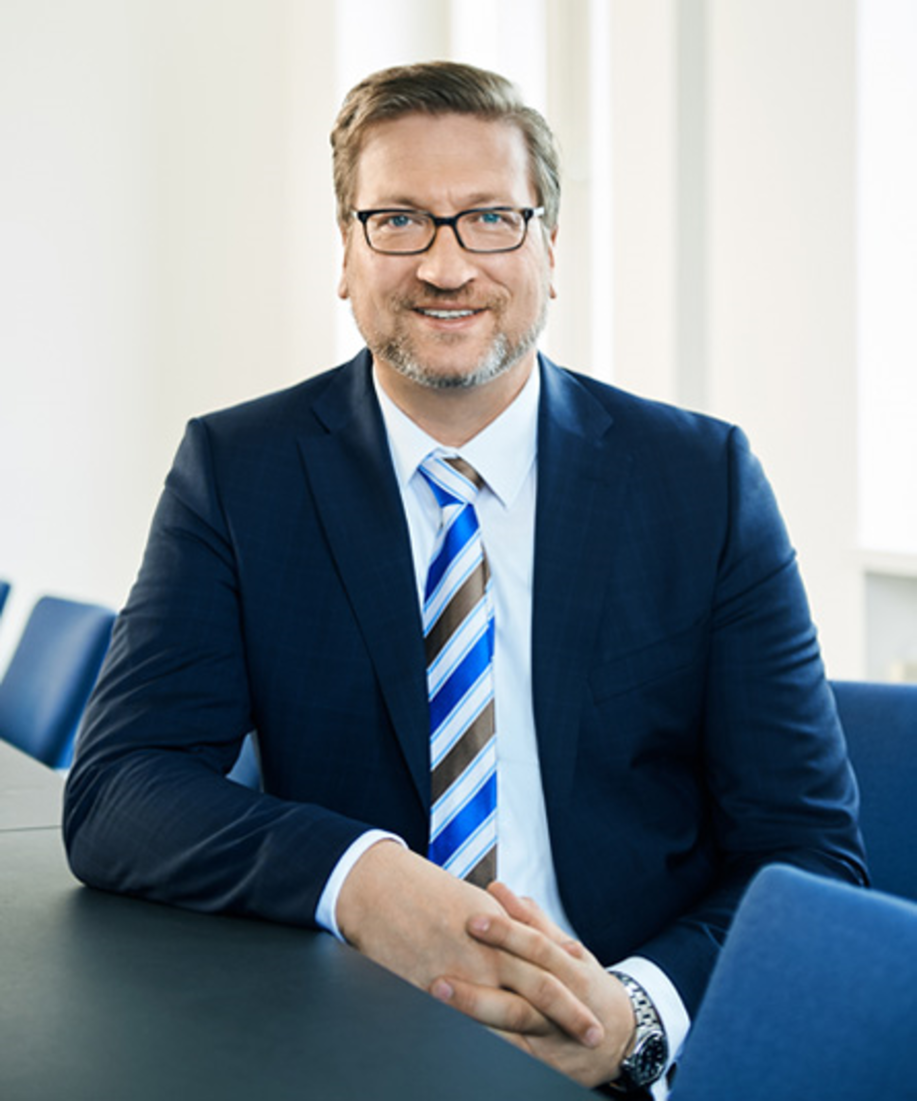
PROUT EMPLOYER Noerr
“The challenge is to make the topic more present, to establish it as a matter of course, and also to increase commitment and visibility. It’s important to make people aware of what’s on offer at an early stage so that new employees are motivated to take part.”
Matthias Stupp is a partner in Noerr’s Hamburg office. He has been advising international companies, family offices and banks in the fields of litigation and dispute resolution since 2002. His main practice areas are commercial, company and banking law. Owing to previous positions in Düsseldorf, Cape Town, New York and Hamburg, Matthias has extensive international experience which he deploys to the benefit of his clients. He is also co-heading the diversity team at Noerr.
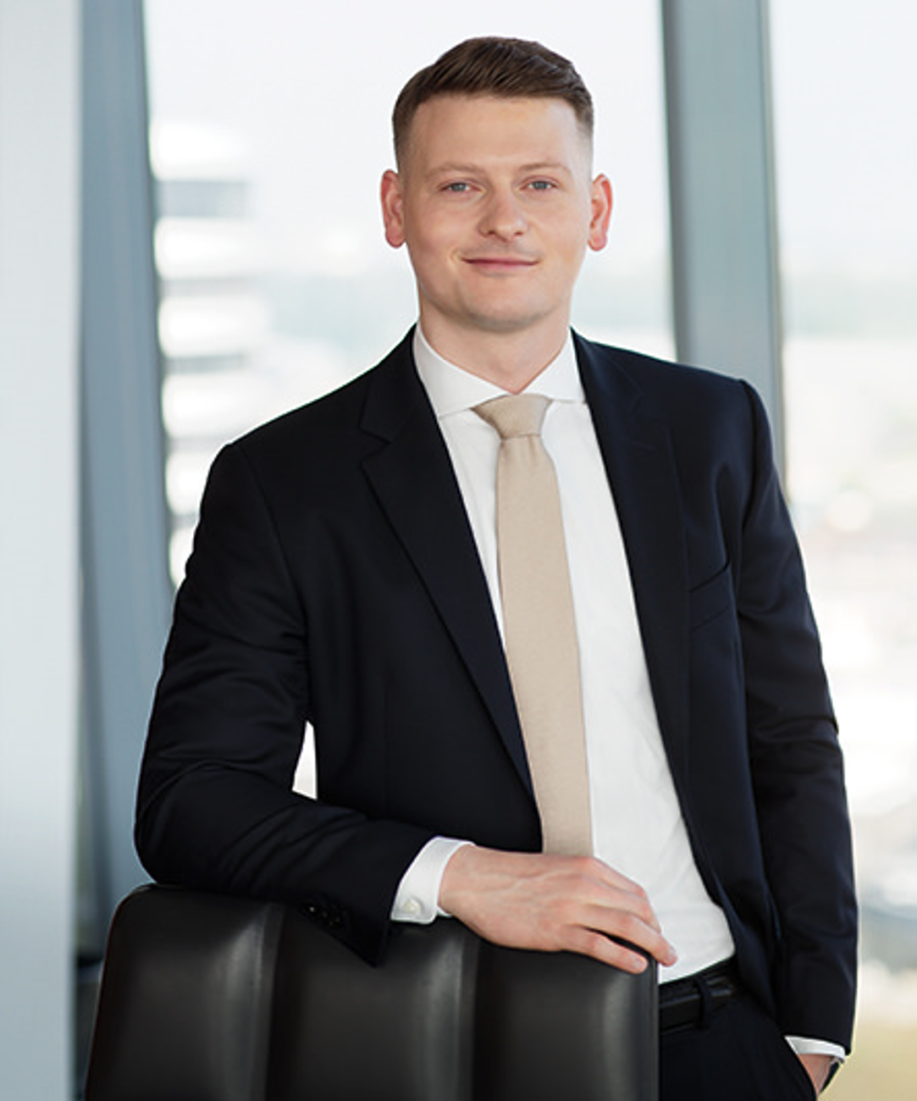
“In my opinion, it is the nature of things to stand up as a gay man. Just as I have experienced a lot of support on my way, I also want to support other people. Therefore, it is natural for me to pass on what has been modeled for me.”
Paul Alexander Tophof is an associate in the Düsseldorf office and a member of the employment law practice group at Noerr. He advises national and international clients on all matters of individual and collective employment law. One focus of his advice is in particular on the (strategic) reorganization and restructuring of companies, including the support of related negotiations with works councils and trade unions. He is a member of Noerr’s Diversity Network, where he is particularly involved in the LGBT+ field.
You were immediately ready for a joint interview – thank you again for that! Why is it a matter of the heart for you to support LGBT*IQ?
Matthias Stupp: The matter of the heart is explained by my own biography: how I felt myself, how I would have liked it to be. Creating visibility is important. It is part of the corporate culture and must be lived accordingly. There is no point in older partners or management dictating that “everyone is diverse from today on.” This is a topic where one’s own conviction should be visible – and that should be exemplified. Accordingly, it is necessary to approach the matter with one’s own commitment and to show others: “This is important to us because it is a matter of the heart and not a business case.” This message is important to employees_. For this reason, we build this with them from the beginning. At the same time, we create opportunities for networking.
Paul Tophof: In my opinion, it is the nature of things to stand up as a gay man. Just as I have experienced a lot of support along the way, I also want to support other people. I have already received positive feedback from many law students about how honest I am about my sexual orientation and thus act as a role model for them. Therefore, it is natural for me to pass on what has been modeled for me.
Dr. Stupp, the Noerr Diversity Committee meets regularly under your leadership. Are there any concrete plans for activities in your company regarding LGBT*IQ in the workplace?
Matthias Stupp: Our diversity approach is currently very diverse. The committee is made up of six people, with a wide variety of projects being implemented by smaller groups. We are dedicated to the LGBT*IQ issue with the goal of increasing visibility and bringing the idea of networking more to the fore. We want to achieve this mainly through events and memberships. Another aspect is pro bono work. We are always happy when Noerr can be active in this area and make a difference as a firm. Ultimately, we became lawyers because we want to fight for justice, including for the LGBT*IQ community.
“It’s not as hard as many people think, you just have to dare. Small actions are enough at the beginning. Everyone has a community through which networking is possible.”
Where do you see the challenges to LGBT*IQ diversity at Noerr in the coming years?
Matthias Stupp: One challenge is the visibility and motivation of employees to get actively involved. Due to the natural fluctuation in a company, it is important to draw attention to offers at an early stage so that new employees are always motivated to participate. For example, if there are 50 LGBT*IQ people in a company, only half of them may want to be active. Employees from the assistant area or interns who are only there for three months may not contact us at all or only tell us at the end that they think what we are doing is great. If these people get in touch earlier, we have the opportunity to involve them better. That’s the challenge: to make the topic more present, to establish it as a matter of course, and also to increase engagement.
Paul Tophof: At the same time, I also see this challenge as an opportunity to attract young talent from the LGBT*IQ community in particular. If we create this visibility in the company and show that we are an employer where the topic of LGBT*IQ is very present and highly placed, it is a really great opportunity.
What advice would you give to companies that are still in the early stages of their LGBT*IQ diversity efforts?
Matthias Stupp: It’s not as hard as many people think, you just have to dare. Small actions are enough at the beginning. Everyone has a community through which networking is possible. Most companies do not know whether such a network works, because it is often not clear how many employees are actually LGBT*IQ. However, you shouldn’t let that stop you. In the end, it helps everyone.
Paul Tophof: It also helps to take advantage of the offers from PROUT AT WORK. The experience, the expertise of others to be able to profit from it.
Matthias Stupp: LGBT*IQ lives not only from the people who identify with it, but also from allies. These come to events and report, “I’m not gay, but my brother is.” They relate to it and therefore want to get involved and network beyond that. Bottom line: just do it.
What do you hope PROUT AT WORK will do for you?
Matthias Stupp: The networking idea is in the foreground for us. It’s hard to do everything on your own. That’s why we get help from you, PROUT AT WORK, to tackle the issue professionally. Particularly when it comes to important topics such as gendering, we as a law firm are in the process of finding out how to deal with them correctly. In this situation, PROUT AT WORK is a great support for us with its recommendations: with concrete recommendations that we can give to people. Whether it is then actually implemented in this way is another question. But despite all this, PROUT AT WORK is simply a great pool of ideas. That is precisely what we would like to see.
Paul Tophof: For us, your experience and your knowledge of various event formats, which we can take on ourselves or which we can take on together with you, is also a great support. I often find myself not knowing everything about the various topics. So it is helpful to define these topics clearly for us. That’s why this is also the support we want from PROUT AT WORK.
Dear Matthias Stupp, dear Paul Tophof, thank you very much for the interview!
Coming Out Day is held annually on October 11. Launched in the USA in 1988, Coming Out Day aims to encourage people to come out, to make the LGBT*IQ community visible and to reduce prejudice.
Coming out is an identity process: it is about self-knowledge, acceptance of one’s own person, and having the courage to tell others. That’s why affected people often spend years thinking about how and when to come out. Uncertainty and fear play a big role – of the reaction of the family, of conflicts with close people, of the reaction of superiors and colleagues, often accompanied by the fear of a career break. With a coming out, affected persons therefore give a great leap of faith, which must be protected. Knowing well that parents, managers and colleagues may also have to go through a process (contradictory feelings, worries, acceptance) – they should nevertheless be strengthened right at the beginning. Communication is therefore very important: How everyone can support well, which questions should be given space (and which should be avoided), we illuminated in a joint panel discussion with our PROUT EMPLOYER Commerzbank AG.
This event took place in German. The recording of the panel discussion can be found here:
The panelists:
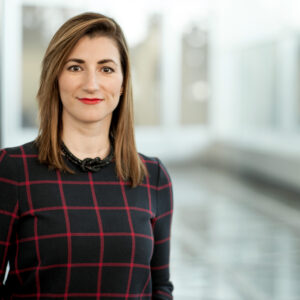
“The relationship between siblings is a special one and, for me, one of the most important in the family that doesn’t stop with adulthood. For example, I was the first contact person, at least in front of my parents, when my brother came out about 20 years ago. At the time, I was overwhelmed and asked questions like, “Are you sure?”. Yet it was I myself who was unsure and felt helpless. Today, I want to create trust through education and I’m really looking forward to this exchange.”
Sofia Strabis, Head of Diversity & Inclusion, Commerzbank AG
“Since my coming out, I have been open about the subject. I feel responsible for my children in particular. After all, how are they and others supposed to deal with it as a matter of course if I don’t do it myself? You can only break down prejudices if you get into a conversation. With my voluntary commitment as ARCO spokesperson and as a board member of LSVD Saxony, I therefore want to ensure visibility and also encourage others.”
Sabine Schanzmann-Wey, Regional Press Officer and ARCO Spokesperson, Commerzbank AG, Member of the Board of LSVD Sachsen e.V.
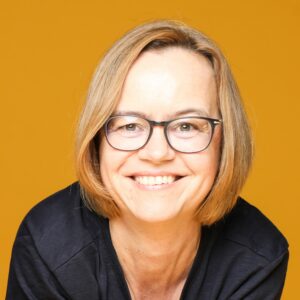

“When my daughter told us she was a lesbian in 2006, when she was twelve, I was, to be honest, a bit taken aback. Because until then I hadn’t really been aware of the queer world. This was an impetus to deal with the topic. Today, based on my own experiences as a father and also as a manager, I want to support, raise awareness and advocate for an open and tolerant work environment.”
Paul Fillmore, Divisional Board Group Risk Control, Commerzbank AG
“I know from my own personal experiences how difficult but also important it is to come out in private and at work. We all, friends, family, parents and colleagues, contribute a great deal to an open culture in society and at work. Our common goal should be that everyone who wants to come out can do so – without experiencing any disadvantages or exclusion.”
Dr. Jean-Luc Vey, Executive Board, PROUT AT WORK-Foundation

In an interesting interview with the magazine “Wirtschaftspsychologie aktuell”, Denise Hottmann and Marco Sticksel report how, together with PROUT AT WORK consulting, the topic of LGBT*IQ was successfully put on the agenda at PROUT EMPLOYER Boehringer Ingelheim.
The full interview can be found here. (The interview and article are German)
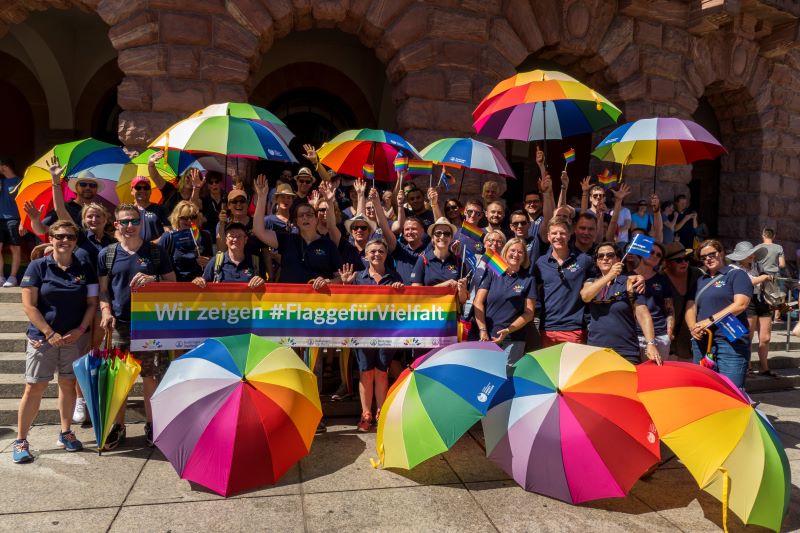
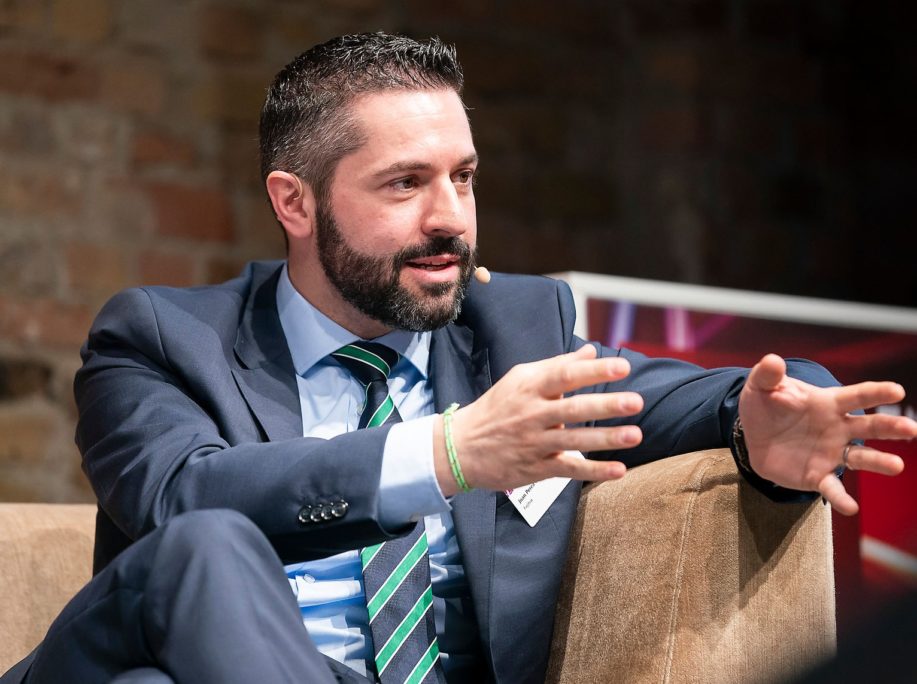
PROUT EMPLOYER Fujitsu
“LGBT*IQ friendly workplaces are part of what we do at Fujitsu.”
Juan Perea Rodríguez started with Fujitsu Siemens in 1999 and held several positions until 2021. In May 2021 he became Head of Sales Central Europe at Fujitsu Technology Solutions GmbH and Managing Director Germany. Juan was born in 1980 and is married with two sons.
Juan Perea Rodríguez, what was your motivation for becoming a PROUT EMPLOYER?
Juan Perea Rodríguez: We wanted to set an example. Allyship is important and, for me, this also includes to openly and visibly stand up for LGBT*IQ. The more companies position themselves here, the more “normality” the topic will hopefully achieve. We want to make a contribution here. In addition we wanted to promote internal networking, especially in Germany, because we already have a great global network with FUJITSU Pride and would like to see even more commitment from our German Workforce.
“The signing of the UN LGBTI Standards by our former President was a special moment and brought us a lot of positive feedback internally and externally.”
In 2016 Fujitsu was the first multinational corporation from Japan who promoted LGBT*IQ friendly workspaces throughout the global organisation. How did this come about and what were the reactions to this?
Juan Perea Rodríguez: There is a lot happening around women’s equality in Japan and as this happens, perceptions of other diversity dimensions are also changing. This cultural shift has made diversity increasingly important and LGBT+ friendly workplaces are part of what we do at Fujitsu, true to our motto “be completely you”. The signing of the UN LGBTI Standards by our former President was a special moment and brought us a lot of positive feedback internally and externally.
How did D&I and the corporate culture change since that time?
Juan Perea Rodríguez: With the revision of the Fujitsu Way, our current President Tokita-san has now also “literally” anchored Diversity and Inclusion in our Code of Values. This has given them the status they deserve internally and in society in general. As topics such as mutual respect, tolerance and cooperation were already clearly anchored in Fujitsu Way before, this was only cosmetics. The culture was already there.
Based on your experiences: What is your advice for global corporations who plan to engage within LGBT*IQ diversity?
Juan Perea Rodríguez: Speak to all employees and listen to all of them. Encourage the LGBT*IQ community within the company to openly share their experiences, needs, etc. Offer help and, if necessary, support in countries where discrimination is on a completely different scale than in Western Europe.
Where do you identify future challenges concerning your engagement for LGBT*IQ diversity within Fujitsu?
Juan Perea Rodríguez: To sensitize everyone in the company and to make the explicit preoccupation with the topic of D&I obsolete at some point. Because it is firmly anchored in all we do and we naturally all treat each other with respect and appreciation.
